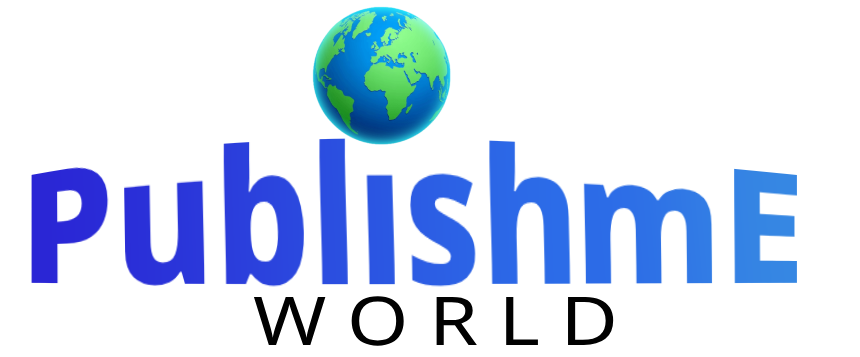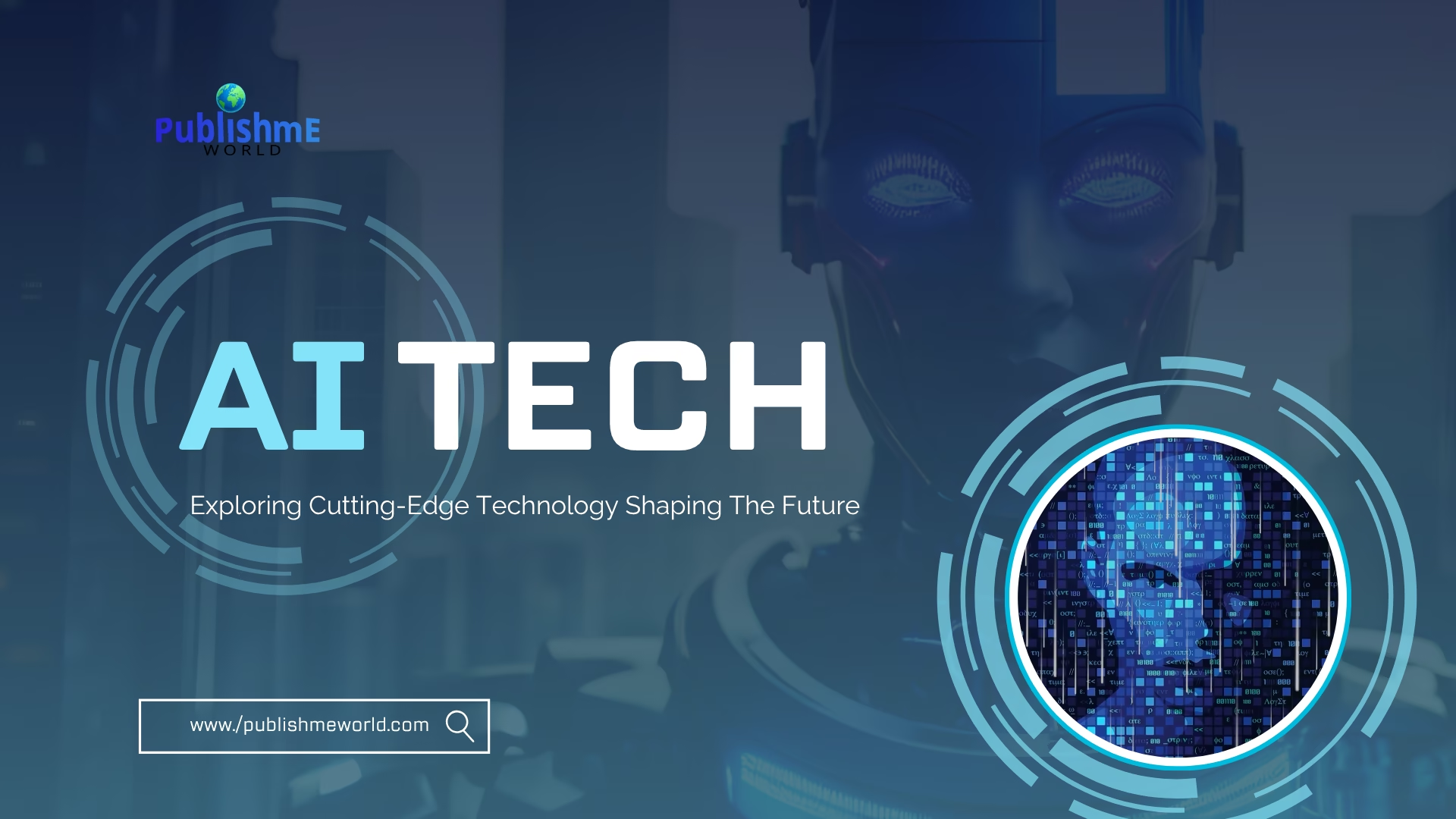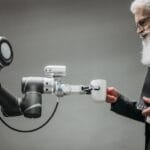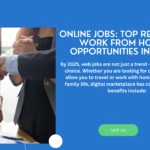Artificial intelligence is no longer just a buzzword—it’s the foundation of the technological revolution unfolding in 2025. As we move into a hyper-connected and automated world, AI is transforming every industry, from healthcare and finance to education and entertainment. The impact of AI on our daily lives, the global economy, and the future of work is both exciting and profound. This blog dives deep into the latest AI innovations that are not only pushing boundaries but also shaping a smarter and more efficient future.
Contents
- 1 The New Era of Artificial Intelligence
- 2 AI in Healthcare: Redefining Patient Care
- 3 AI and Automation in Business Operations
- 4 AI in Education: Personalized and Immersive Learning
- 5 AI in Smart Cities and Urban Planning
- 6 Generative AI: Creativity Meets Technology
- 7 The Role of AI in Cybersecurity
- 8 Ethics, Bias, and AI Regulation
- 9 Future Outlook of AI in 2025 and Beyond
- 10 Final Thoughts
The New Era of Artificial Intelligence
By 2025, AI has evolved from having an accessory to becoming the most important driver for decision-making, creativity, and automation. With progress in machine learning, neural networks, and natural language treatment, AI systems can now mimic human feeling, analyze the data sets on a large scale of seconds, and even produce original materials or codes. These technologies are no longer experimental—they are commercial, practical, and deployed in areas. Governments, companies, and individuals are actively integrated into AI tools to streamline operations, increase productivity, and provide personal experiences at any time as before.
AI in Healthcare: Redefining Patient Care
One of the most transformation effects of is in the health care system.-controlled diagnostic tools now do better than human doctors to identify diseases such as cancer, heart disease and neurological disorders. In 2025, smart diagnostic platforms can process medical imaging data in real time, predict potential health risks and offer analogue treatment plans. AI-driven chatbots and virtual health assistants provide 24/7 help to patients, and help them understand book agreements, symptoms and care for care. Robotics combined with have also been improved in surgical precision, while future models help hospitals to handle resources and prevent outbreaks before they occur.
AI and Automation in Business Operations
The revolution does how companies operate, automate and innovate. In 2025, companies uses not only for customer service, but also deep data analysis, fraud detection, optimization of the supply chain and the management of human resources. Smart algorithms assess consumer behavior and predict market trends, leading to a competitive advantage for companies. Chatbots and virtual assistants handle thousands of questions daily, reduce the fee and improve the experience. -Robot process automation (RPA) ends manual functions to be repeated in finance, logistics and administration, so that human employees can focus on strategic work.
AI in Education: Personalized and Immersive Learning
By 2025, using , education has become more adaptable and inclusive. Wise teaching systems assess individual students’ performance and offer customized learning experiences. algorithms help students analyze the engagement, recommend material, and predict learning holes to ensure better results. With the integration of augmented reality (AR) and , students are now experiencing engaging learning in virtual classes that mimic the real-world environment. also helps cheat institutions, track educational performance, and provide mental health care through emotional analysis equipment.
AI in Smart Cities and Urban Planning
The development of smart cities is another domain where is playing a critical role. Urban planners now use to analyze traffic patterns, optimize energy consumption, and monitor public safety in real-time. In 2025, -powered surveillance systems are capable of detecting unusual activity and alerting authorities instantly. Smart sensors and connected infrastructure help manage everything from street lighting and waste collection to public transport scheduling. By processing enormous volumes of city data, ensures more sustainable and livable urban environments for the future.
Generative AI: Creativity Meets Technology
2025 marks a significant milestone in generative capabilities. Tools like ChatGPT, MidJourney, Sora, and Runway ML are not just creating text but also generating high-quality images, videos, music, and code. Creative professionals are using these tools for brainstorming, content generation, storyboarding, and marketing campaigns. is also writing scripts, composing songs, and producing visual art that rivals human creativity. This shift has sparked debates around originality, copyright, and the role of human artists, but there is no denying that generative is redefining the boundaries of creativity and innovation.
The Role of AI in Cybersecurity
As technology is moving forward, there are cyber threats. In 2025, leads the digital defense system. The algorithm detects network behavior and flags the potential dangers before continuing. Learn to adapt to the risk that is constantly being developed from the new data cyber security system operated by machine learning. -driven danger hunting equipment gives real-time notice and automatic phenomenon reaction, causing damage and downtime. Organizations are rapidly dependent on for the protection of sensitive data, ensures compliance with regulations and protects against both internal and external threats.
Ethics, Bias, and AI Regulation
With great power comes great responsibility. While provides incredible benefits, it also increases moral concerns. By 2025, the responsible has been focused on development. Governments and technical companies are actively working to create guidelines to ensure transparency, justice and responsibility in the system. BISD algorithms, monitoring and privacy violations are some pressure problems during the global investigation. Researchers develop clear models that provide transparency in decision -making processes. The rules on data use, consent and the righteousness of the algorithm are updated to reflect increasing influence in society.
Future Outlook of AI in 2025 and Beyond
The future of is endless. For example, quantum calculation, edge data and 6G networks will be mainstreams, will be even more powerful and accessible. is expected to conduct successes in climate science, renewable energy, space exploration and personal medicine. Companies that use improve participants strategically. However, the focus will go from rapid automation to growth – where strengthens people instead of replacing them. The most successful organization in 2025 will be those who mix human creativity with machine -intelligence to operate permanent innovation.
Final Thoughts
technology in 2025 is not just a tool—it is a transformative force shaping the world around us. From healthcare and education to business and creative arts, is unlocking possibilities we once thought belonged to science fiction. As these cutting-edge technologies become more embedded in daily life, the need for responsible development, ethical use, and continuous learning becomes even more critical. The future belongs to those who are ready to embrace , adapt to its pace, and lead with innovation and integrity.
Whether you’re a business leader, a student, or a tech enthusiast, understanding and its impact is essential for thriving in the digital future. The wave of artificial intelligence is here—and it’s only getting stronger.





